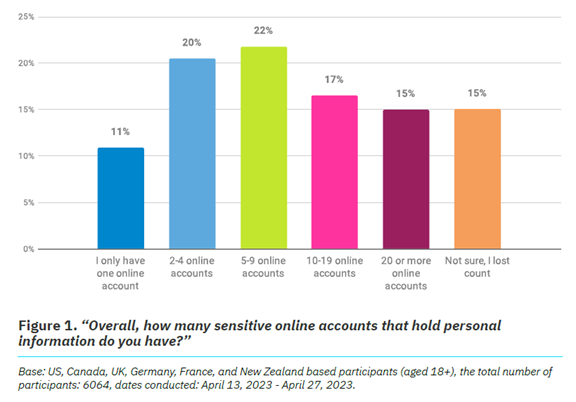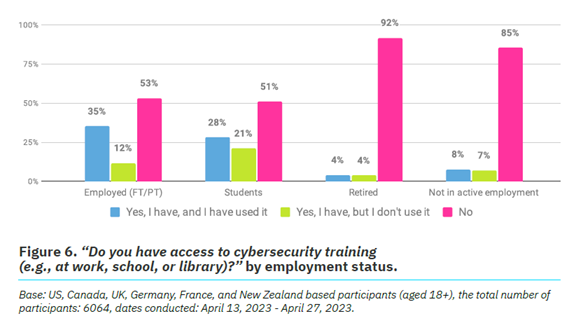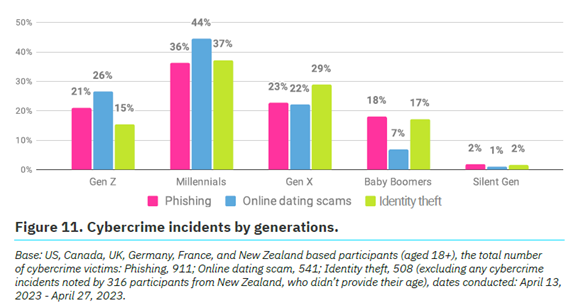Embracing Cybersecurity in the Digital Age
In our interconnected world, cybersecurity holds unparalleled significance. As technology evolves, so do the challenges posed by cyber threats.
While the digital landscape presents risks, it’s within our power to mitigate them. By addressing common pitfalls such as weak passwords and complacency, we can bolster our defenses against cyberattacks. Recognizing that human error contributes to a majority of data breaches underscores the importance of fostering better cyber hygiene.
The National Cybersecurity Alliance and CybSafe are leading the charge in promoting cyber awareness and resilience. Through their annual report on cybersecurity attitudes and behaviors, they aim to empower individuals and businesses to safeguard their digital environments.
This year’s comprehensive study surveyed thousands across multiple countries, delving into their awareness of cyber risks, adherence to security practices, and encountered challenges.
The insights gleaned from the report shed light on how people perceive and respond to cyber threats, offering valuable guidance on fortifying cybersecurity practices. Let’s explore some key findings from this illuminating report.
We Are Online… a Lot
It’s no surprise that 93% of the study participants are online daily. The logins we create continue to expand, as well as those considered “sensitive.” Sensitive accounts hold personal information that could be harmful if stolen.
Nearly half (47%) of the study’s respondents have ten or more sensitive online accounts. This amplifies risk. Especially if people are using the same password for two or more of those accounts.

Online Security Makes People Frustrated
Most people (84%) feel that online security is a priority. But as many as 39% feel frustrated, and nearly the same amount intimidated. It can seem that you just can’t get ahead of the hackers. Just over half of people thought digital security was under their control. That leaves a whole lot that don’t think so.
But that is no reason to let down your defenses and become an easy target. There are best practices you can put in place to safeguard your online accounts that work.
These include:
- Enabling multi-factor authentication on your accounts
- Using an email spam filter to catch phishing emails
- Adding a DNS filter to block malicious websites
- Using strong password best practices
People Need More Access to Cybersecurity Training
One way to reduce human errors associated with cybersecurity is to train people. The survey found that just 26% of respondents had access to cybersecurity training.
It also broke this down by employment status. We see that those not actively employed are most lacking. Even those employed can use more training access and encouragement. Just 53% report having access to cybersecurity awareness training and using it.

Employers can significantly reduce their risk of falling victim to a data breach. They can do this by beefing up their security awareness training. There is also a large opportunity to provide more training. Particularly to those retired or not actively employed.
Cybercrime Reporting Is Increasing
Over a quarter (27%) of survey participants said they had been a victim of cybercrime.
The types of cybercrimes reported include:
- Phishing (47%)
- Online dating scams (27%)
- Identity theft (26%)
Which generation reported the most cybercrime incidents? Millennials. In fact, Baby Boomers and the Silent Generation reported the fewest.

No matter where you fall in the generations, it’s important to adopt security best
practices. We’ll go through some of these next.
Online Security Best Practices to Reduce Your Risk
- Strong, Unique Passwords:
- Start with the basics. Create strong, unique passwords for each online account.
- Use a combination of uppercase and lowercase letters, numbers, and special characters.
- Multi-Factor Authentication (MFA):
- Enhance your account security with multi-factor authentication.
- MFA adds an extra barrier to unauthorized access. Even for
compromised passwords.
- Regular Software Updates:
- Keep all your software, including operating systems and mobile
apps, up to date.
- Keep all your software, including operating systems and mobile
- Beware of Phishing Attacks:
- Exercise caution when clicking on links or opening attachments
especially in emails from unknown sources. - Verify the legitimacy of emails and websites. Check for subtle
signs, such as misspelled URLs or unfamiliar sender addresses.
- Exercise caution when clicking on links or opening attachments
- Use Secure Wi-Fi Networks:
- Ensure you connect to a secure and password-protected Wi-Fi
network. - Avoid using public Wi-Fi for sensitive transactions. Unless using a virtual private network (VPN).
- Ensure you connect to a secure and password-protected Wi-Fi
- Data Backup:
- Regularly back up important data to an external device or a secure
cloud service.
- Regularly back up important data to an external device or a secure
- Use Antivirus and Anti-Malware Software:
- Install reputable antivirus and anti-malware software on all devices.
- Regularly scan your systems for potential threats.
- Be Mindful of Social Media Settings:
- Review and adjust your privacy settings on social media platforms.
- Limit the amount of personal information visible to the public.
- Secure Your Personal Devices:
- Lock your devices with strong passwords or biometric
authentication.
- Lock your devices with strong passwords or biometric
- Educate and Stay Informed:
- Educate yourself and your team through cybersecurity awareness
programs. This fosters a culture of vigilance and preparedness.
- Educate yourself and your team through cybersecurity awareness
Schedule Cybersecurity Awareness Training Today
A little education on cybersecurity goes a long way toward protecting your data. Our experts can provide security training at the level you need. We’ll help you fortify your defenses against phishing, scams, and cyberattacks.
Contact us today to schedule a chat.
Abuzz Technologies
Managed IT Services and Support in and around Philadelphia
Phone: 215.600.0349
Email: support@abuzztech.com
Business IT Services and Support in and around Philadelphia

Recent Comments